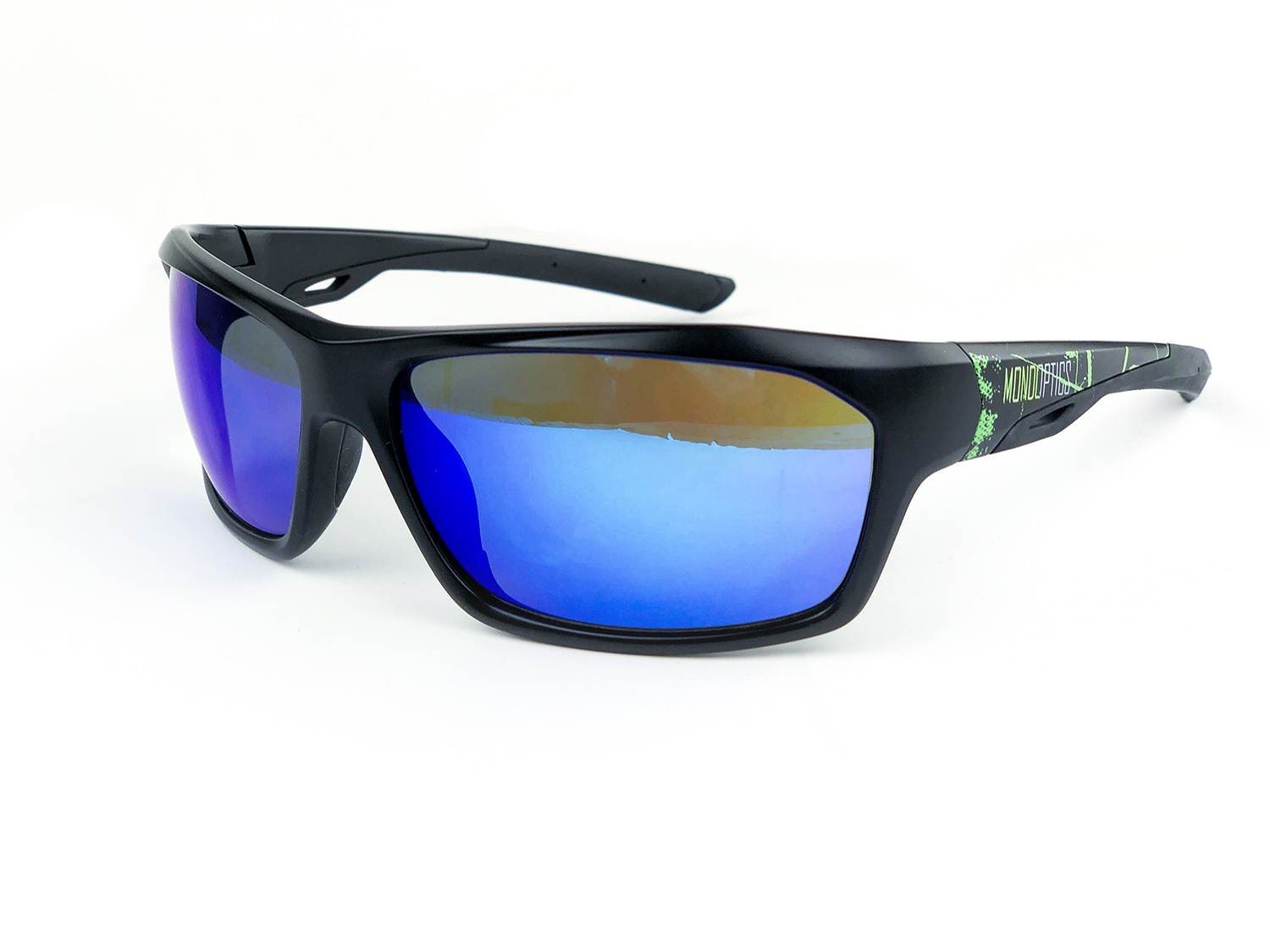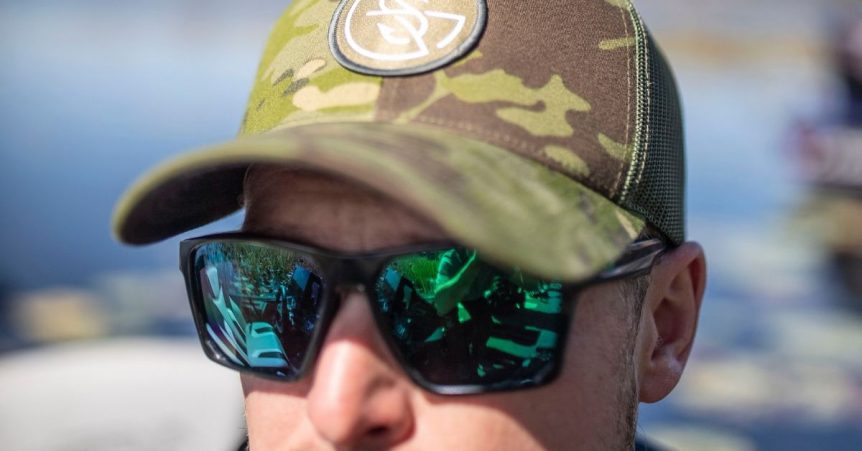Polarized Sunglasses: Do They Really Help You Fish?
[print_link]
Whenever I went fishing during my childhood, I always wore sunglasses mainly to look cool. Little did I realize I was developing a habit that would be saving my eyes for 50 years of fishing trips and hopefully many more to come.
While donning a cool-looking set of shades can improve an angler’s image, there are more critical reasons why anglers should wear sunglasses. The most important thing is protection because the most important piece of equipment you put in your boat is your eyesight.
Polarized Shades Keep You Safe

Your fishing trip can turn into a nightmare if you pull a snagged lure out of a tree and it rockets back at you or if you turn around while your partner is casting with one of those 7-foot rods and his lure hits you in the face. If you are wearing sunglasses, the eyewear will help deflect hooks or sinkers away from your eyes and prevent a serious mishap that could lead to the loss of your precious sight.
Polarized Sunglasses Fend Harmful Rays

Sunglasses also offer protection from harmful ultraviolet rays (UVA and UVB) and glare caused by sunlight. The same ultraviolet sun rays that cause your skin to burn and eventually lead to aging skin or cancer can also cause eye diseases, such as cataracts and macular degeneration (sunspots) on the retina of the eye. A harsh glare shining off the water can also lead to eye strain and fatigue.
How Polarized Sunglasses Changed The Game

During my early years of fishing, I discovered a good pair of polarized sunglasses let me see trout in clear-water streams. The glasses cut down glare and gave me the chance to continually present my lures in front of the fish and eventually make them bite. Sight fishermen have taken advantage of polarized lenses for years to stalk their quarry.
Start Seeing More With Polarized Sunglasses

If you wear polarized lenses you can eliminate most of the surface glare and it makes your vision more comfortable. A polarized lens serves as a light filter like a Venetian blind which only allows light from a certain direction to enter the eye. Since it allows light from only a certain direction, a polarized lens then eliminates glare or scattered light. Finding a pair of sunglasses with high polarization should be a priority for anglers. Most of the good sunglass companies are going to achieve maximum polarization but not total polarization with their fishing sunglasses. A rule of thumb for picking sunglasses with maximum polarization is the darker the lens tint, the more polarization it has. So the darkest tint will offer the best polarization in any color of lenses.
Does Lens Color Really Matter?

Lens color is an option anglers should consider when choosing polarized sunglasses. Most sunglass companies make several shades of tint. Tints enhance your performance by selectively filtering light rays. A gray lens filters all light colors equally so all hues look their natural shade. Dark gray lenses than are good for all-purpose sunglasses because these lenses eliminate glare best on bright sunny days and show true colors. Brown, green and yellow lenses serve specific functions for anglers. These tints are going to enhance some colors while they bleach other colors out. A sight angler wants a tint that will enhance the colors of bass but he wants to bleach out the surrounding colors, thus enhancing the contrast between the two.
Yellow heightens contrast, but that lens tint isn’t dark enough to provide maximum polarization. So yellow lenses work best for sight fishing in shallow water on dark, overcast days.
Polarized Glasses With Brown Lenses
Amber or brown lenses are designed for overcast or hazy days and fog. These lenses offer high contrast but the lighter tint also loses polarization.
I have discovered a pure green tint is the ultimate color for sight fishing since it offers both high contrast and high polarization. The green tint almost matches the color of green in the bass’ back and enhances it. A green lens also filters out other colors such as tan or beige that you typically see on the nest and therefore enhances the bass’ image. Looking through a green lens almost gives you the feeling that you’ve taken a pencil and outlined the bass. It really makes the bass stand out.
Glass lenses provided the best optics years ago but when impact-resistant polycarbonate became available with polarization, polycarbon lenses became the standard of fishing sunglasses.
You Get What You Pay For

Buying a good pair of polycarbon lens sunglasses costs more, but your eyes will benefit in the long run. So if you buy a pair of sunglasses for $9.95 you are going to get some lens distortion and when looking at objects at a distance your eyes have to constantly change focus to compensate for the distortion in the lenses. That’s how an inexpensive sunglass lens produces eye strain because you continually have to change your focusing in that lens. Quality optical lenses will not cause your eyes to alter focusing.

